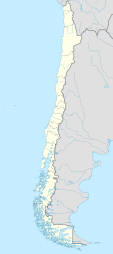
Since its return to democracy in 1990, Chile has been an active participant in the regional and international arena. Chile assumed a two-year non-permanent position on the UN Security Council in January 2003 and was re-elected to the council in October 2013. It is also an active member of the UN family of agencies, serving as a member of the Commission on Human Rights and participating in UN peacekeeping activities. Chile hosted the second Summit of the Americas in 1998, was the chair of the Rio Group in 2001, hosted the Defense Ministerial of the Americas in 2002, and the APEC summit and related meetings in 2004. In 2005 it hosted the Community of Democracies ministerial conference. It is an associate member of Mercosur and a full member of APEC. The OECD agreed to invite Chile to be among four countries to open discussions in becoming an official member.

Chile's 2017 census reported a population of 17,574,003 people. Its rate of population growth has been decreasing since 1990, due to a declining birth rate. By 2050 the population is expected to reach approximately 20.2 million people, at which it is projected to either stagnate or begin declining. About 85% of the country's population lives in urban areas, with 40% living in Greater Santiago. The largest agglomerations according to the 2002 census are Greater Santiago with 5.6 million people, Greater Concepción with 861,000 and Greater Valparaíso with 824,000.

Pedro Gutiérrez de Valdivia or Valdiva was a Spanish conquistador and the first royal governor of Chile. After serving with the Spanish army in Italy and Flanders, he was sent to South America in 1534, where he served as lieutenant under Francisco Pizarro in Peru, acting as his second in command.
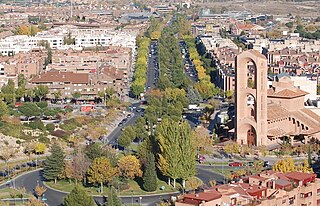
Pozuelo de Alarcón is a municipality in the Community of Madrid, Spain. Bordering the Moncloa-Aravaca district of Madrid proper to its west, Pozuelo de Alarcón is surrounded by large Mediterranean pine-tree forests: the Casa de Campo, the Monte del Pardo, and the Monte del Pilar. As of 2022, it ranks as the wealthiest municipality in Spain. La Finca, an isolated luxury residential area known by its affluent residents, most notably football players, lies within the municipality bounds.

Cueca is a family of musical styles and associated dances from Chile, Argentina, and Bolivia. In Chile, the cueca holds the status of national dance, where it was officially declared as such by the Pinochet dictatorship on September 18, 1979.
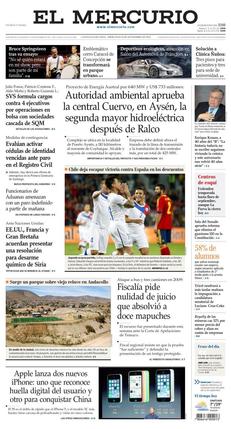
El Mercurio is a Chilean newspaper with editions in Valparaíso and Santiago. Its Santiago edition is considered the country's newspaper of record and it is considered the oldest daily in the Spanish language currently in circulation. El Mercurio is owned by El Mercurio S.A.P., which operates a network of 19 regional dailies and 32 radio stations across the country.
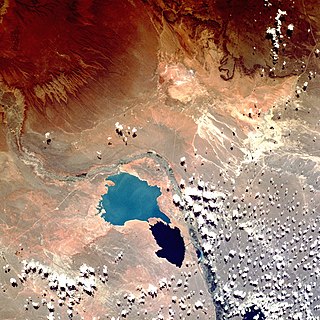
The Neuquén Group is a group of geologic formations found in Argentina. Rocks in the Neuquén Group fall within the Cenomanian to early Campanian stages of the Late Cretaceous Period. It overlies the older Lohan Cura Formation and is itself overlain by the younger Allen Formation of the Malargüe Group, separated from both by unconformities, dated to 98 and 79 Ma respectively.

The Cerros Colorados Complex is a group of dams and hydroelectricity generation facilities on the lower valley of the Neuquén River, in Neuquén, Argentina.

Spanish is the de facto official and administrative language of Chile. It is spoken by 99.3% of the population in the form of Chilean Spanish, as well as Andean Spanish. Spanish in Chile is also referred to as "castellano". Although an officially recognized Hispanic language does not exist at the governmental level, the Constitution itself, as well as all official documents, are written in this language.

Chileans are an ethnic group native to the country of Chile and its neighboring insular territories. Most Chileans share a common culture, history, ancestry and language. The overwhelming majority of Chileans are the product of varying degrees of admixture between European ethnic groups with peoples indigenous to Chile's modern territory. Chile is a multilingual and multicultural society, but an overwhelming majority of Chileans have Spanish as their first language and either are Christians or have a Christian cultural background.
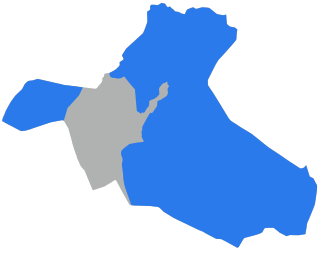
Molleda is one of seven parishes in the Corvera de Asturias municipality, within the province and autonomous community of Asturias, in northern Spain.

The Free of the South Movement is a centre-left political party created in 2006 in Argentina. It is made up of the Movimiento Barrios de Pie, the Agrupación Martín Fierro, the Frente Barrial 19 de Diciembre and the Corriente Patria Libre.

Belgrano is a department of San Luis Province, Argentina.
Roque Mercury Barrial is an Argentine former football player and manager. He played as a forward for clubs of Chile and Colombia and coached in clubs of Chile. He is a naturalized Chilean and based in Santiago, the capital of Chile.

The anarchist movement in Chile emerged from European immigrants, followers of Mikhail Bakunin affiliated with the International Workingmen's Association, who contacted Manuel Chinchilla, a Spaniard living in Iquique. Their influence could be perceived at first within the labour unions of typographers, painters, builders and sailors. During the first decades of the 20th century, anarchism had a significant influence on the labour movement and intellectual circles of Chile. Some of the most prominent Chilean anarchists were: the poet Carlos Pezoa Véliz, the professor Dr Juan Gandulfo, the syndicalist workers Luis Olea, Magno Espinoza, Alejandro Escobar y Carballo, Ángela Muñoz Arancibia, Juan Chamorro, Armando Triviño and Ernesto Miranda, the teacher Flora Sanhueza, and the writers José Domingo Gómez Rojas, Fernando Santiván, José Santos González Vera and Manuel Rojas. At the moment, anarchist groups are experiencing a comeback in Chile through various student collectives, affinity groups, community and cultural centres, and squatting.

The worldwide pandemic of coronavirus disease 2019 caused by severe acute respiratory syndrome coronavirus 2 severely affected Chile. The virus was confirmed to have reached Chile on 3 March 2020. Initial cases had been imported from Southeast Asia and Europe, and expanded into a large number of untraceable infections, placing the country within phase 4 of the pandemic as defined by the World Health Organization, with over 1,000 confirmed cases by 25 March 2020.
